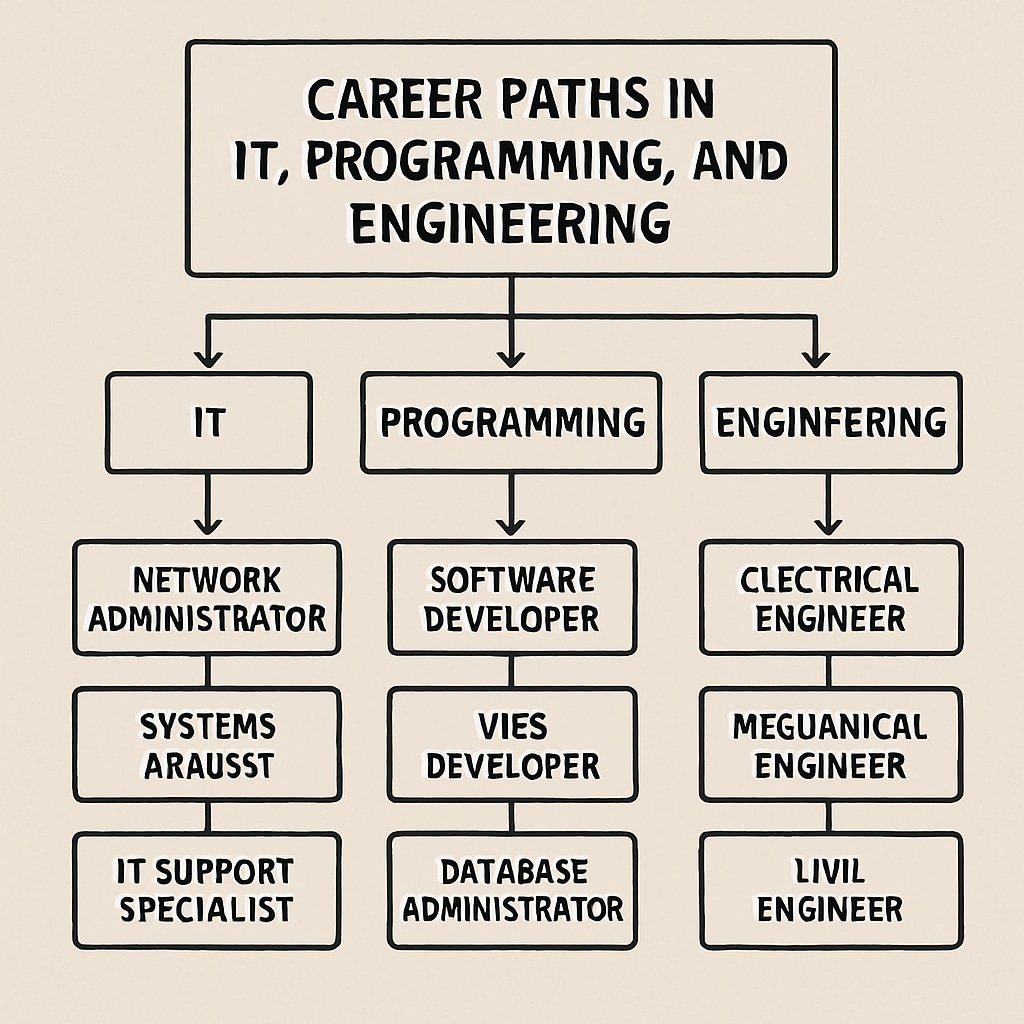For college freshmen grappling with career choices, deciding between IT, networking, programming, electrical engineering, and occupational safety can be daunting. With the rapid pace of technological advancement, these fields offer unique opportunities for growth and development. In this guide, we will explore how to navigate this crossroads by considering industry trends, personal interests, and future career prospects.

Understanding the Landscape of IT and Technical Fields
Before diving into any specific discipline, it’s essential to understand the broader landscape of IT and technical careers. These fields are interconnected, often overlapping in terms of required skills and industry applications. For instance, IT professionals need knowledge of networking, while programmers may benefit from understanding hardware systems.
Some commonly chosen disciplines include:
- Information Technology (IT): Focused on managing and supporting computer systems, networks, and databases.
- Networking: Specializing in communication systems and infrastructure, ensuring seamless connectivity.
- Programming: Writing and debugging code to create software applications or systems.
- Instrumentation and Electrical Engineering: Addressing the design and maintenance of electrical systems and diagnostic tools.
- Occupational Safety and Health (OSH): Ensuring workplace safety through compliance with regulations and risk management.
Researching these areas can provide clarity on their roles and applications in the modern job market.
Matching Your Interests with Career Opportunities
Choosing the right field involves aligning your interests and strengths with potential career paths. For example:
- If you enjoy problem-solving, coding, and logic, programming might be your ideal fit.
- If you excel at organization and communication, consider networking or IT management.
- Students fascinated by machinery and technology may thrive in instrumentation and electrical engineering.
- If you have a passion for public safety and risk assessment, occupational safety and health could be a rewarding choice.
It’s also helpful to take personality and career aptitude tests, which can highlight areas where you naturally excel. Platforms like O*NET Interest Profiler can guide you in identifying potential career matches.

Evaluating Long-Term Job Market Trends
In addition to personal interests, understanding long-term job market trends is crucial. The Bureau of Labor Statistics and other reliable sources provide insights into the growth projections for various professions. For example:
- IT and Networking: With the increasing reliance on digital systems, IT and networking roles are expected to grow by 15% by 2030.
- Programming: As automation and artificial intelligence become more prevalent, programming skills will remain in high demand.
- Electrical Engineering: This field is evolving with the rise of renewable energy systems and smart technologies.
- Occupational Safety: As companies prioritize employee well-being, OSH professionals will see growing opportunities in various industries.
By assessing these trends, students can make informed decisions about which career path offers both stability and growth potential.
Practical Steps to Finalize Your Career Decision
Once you’ve narrowed down your options, take the following steps to finalize your decision:
- Engage in Internships: Gaining hands-on experience is invaluable for understanding the day-to-day realities of a profession.
- Seek Mentorship: Reach out to professors, alumni, or industry professionals who can provide guidance and share their experiences.
- Review Curricula: Explore the coursework for each major to ensure it aligns with your interests and career goals.
- Stay Flexible: Remember, many skills in technical fields are transferable, allowing you to pivot if your interests evolve over time.
Making a well-informed choice at this stage can set the foundation for a fulfilling and successful career.
Ultimately, the decision between IT, networking, programming, and other technical fields should be guided by a combination of passion, market research, and practical exploration. By taking the time to evaluate these factors, college freshmen can confidently embark on a path that aligns with their aspirations and abilities.


